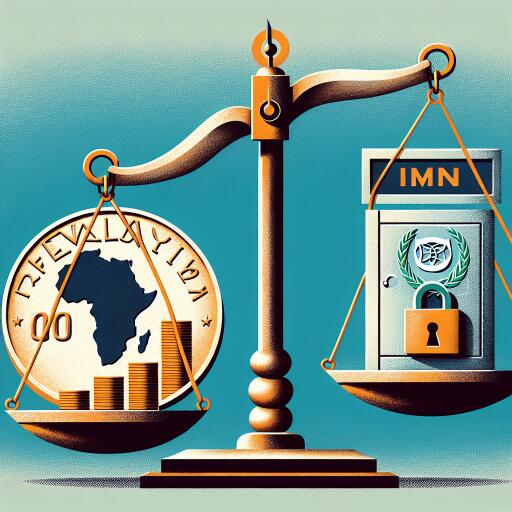Ethiopia Faces Tough Devaluation Decision to Secure IMF Bailout
As Ethiopia navigates through a tough economic landscape, it may have to contemplate a significant currency devaluation to secure a bailout loan from the International Monetary Fund (IMF). This decision comes at a crucial time for East Africa’s most populous country, which is already confronting the challenge of high inflation.
In a surprising turn of events, Ethiopia became the third African state in the past three years to default on its debt in December. The country has not received any IMF funds since 2020, and its last lending arrangement with the fund veered off course in 2021, particularly as the federal government sought to resolve a two-year civil war through a deal with a rebellious regional authority towards the end of 2022.
The necessity for currency reform has not been explicitly stated by the IMF as a precursor for its support. However, the Fund typically advocates for flexible, market-determined exchange rates. Ethiopia has extended a request for $3.5 billion of support from the IMF, highlighting the urgency of its economic needs.
A challenge that complicates Ethiopia’s financial landscape is the presence of chronic foreign currency shortages and a tightly controlled exchange rate. This scenario has led to the flourishing of a black market, where the birr, Ethiopia’s currency, trades significantly higher than the official rate, approximately more than double.
Economic analysts, including Abdulmenan Mohammed based in Britain, suggest that the Ethiopian authorities are apprehensive about the consequences of birr devaluation. Concerns loom large about spiraling inflation and the potential surge in foreign currency denominated debts when calculated in birr.
Seeking relief, Ethiopia entered into a debt restructuring request under the G20’s Common Framework in early 2021. Despite delays caused by the civil war, significant steps such as securing a debt payment suspension from China, its largest bilateral creditor, have been taken. Following China’s lead, other bilateral creditors agreed to a suspension, tying the continuation of this relief to securing an IMF deal.
Speculation around the extent of devaluation necessary for IMF approval varies widely. Some experts like Irmgard Erasmus from Oxford Economics anticipate a 15% weakening to align with an IMF staff-level deal, emphasizing the need for Ethiopia to demonstrate its commitment towards implementing a more flexible foreign exchange regime.
Comparative scenarios with other countries suggest that Ethiopia might have to consider more than one currency adjustment, potentially starting with a devaluation between 30-50%. This strategy points to Ethiopia’s precarious position in negotiations after the expiration of a previous IMF loan programme amid conflict and debt sustainability concerns.
Despite these challenges, there is an expectation that Ethiopia will soon secure an IMF deal, spurred by international efforts to align the necessary reforms. An IMF spokesperson referenced substantial progress in discussions, which are set to continue during the IMF’s Spring Meetings.
Ethiopian authorities have expressed their commitment to foreign exchange reform. Eyob Tekalign, the state finance minister, highlighted the importance of exchange rate unification as a key policy goal, albeit through a gradual approach.
As Ethiopia stands at this critical juncture, the decisions made in the coming months will likely have long-lasting impacts on its economic stability and path toward recovery. The international community watches closely, hoping for a resolution that will support Ethiopia’s journey towards financial reform and sustainability.
